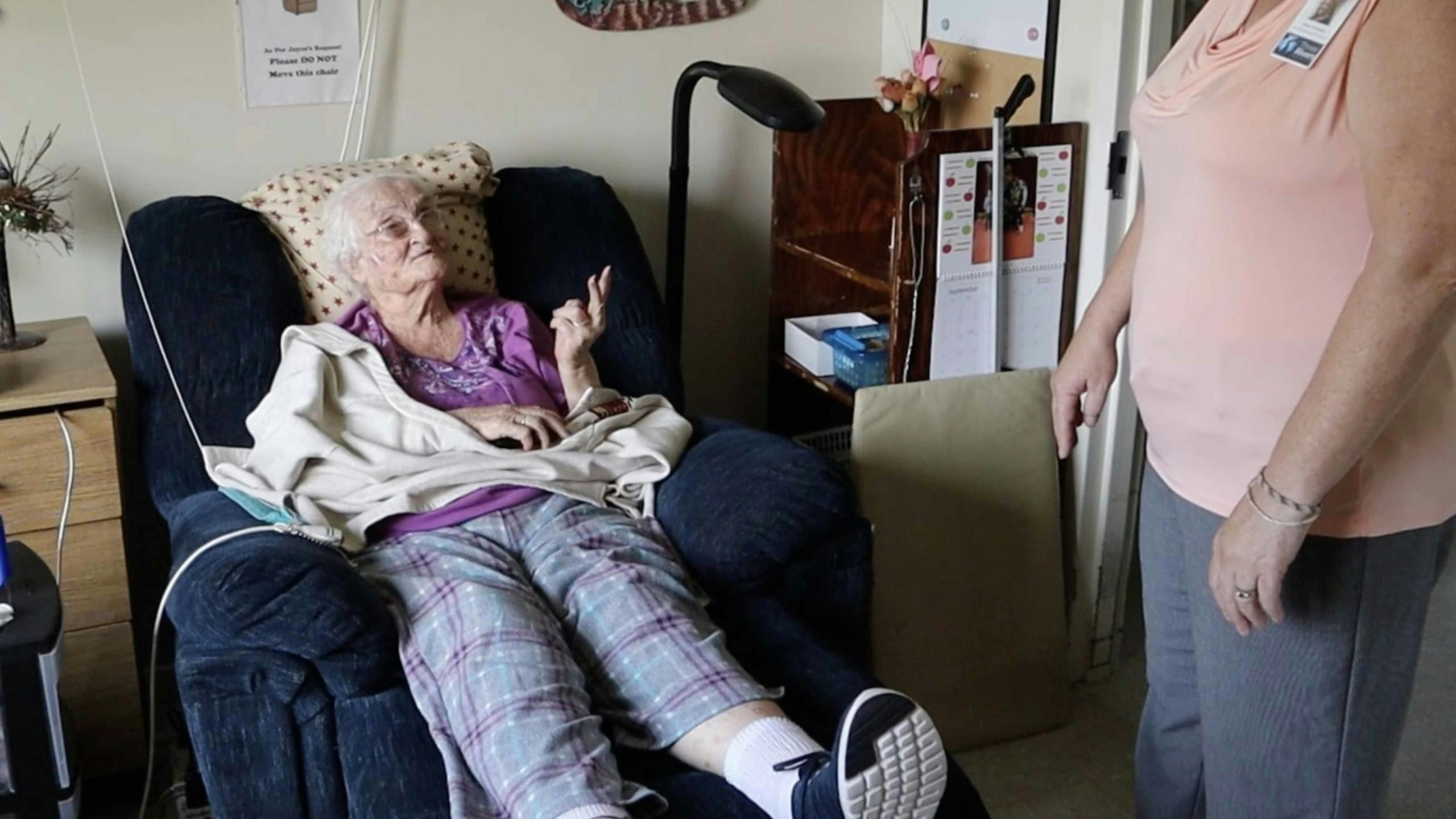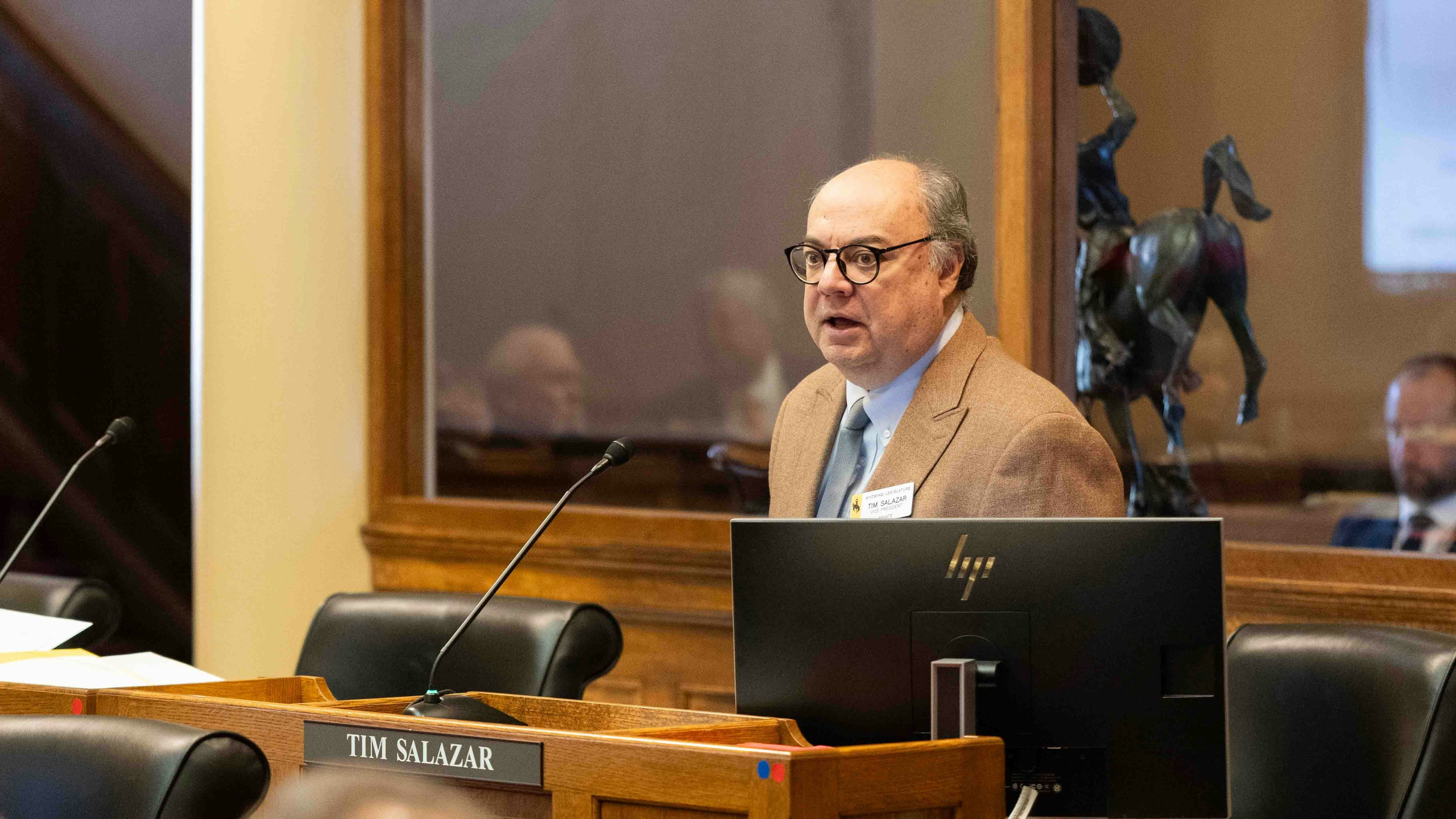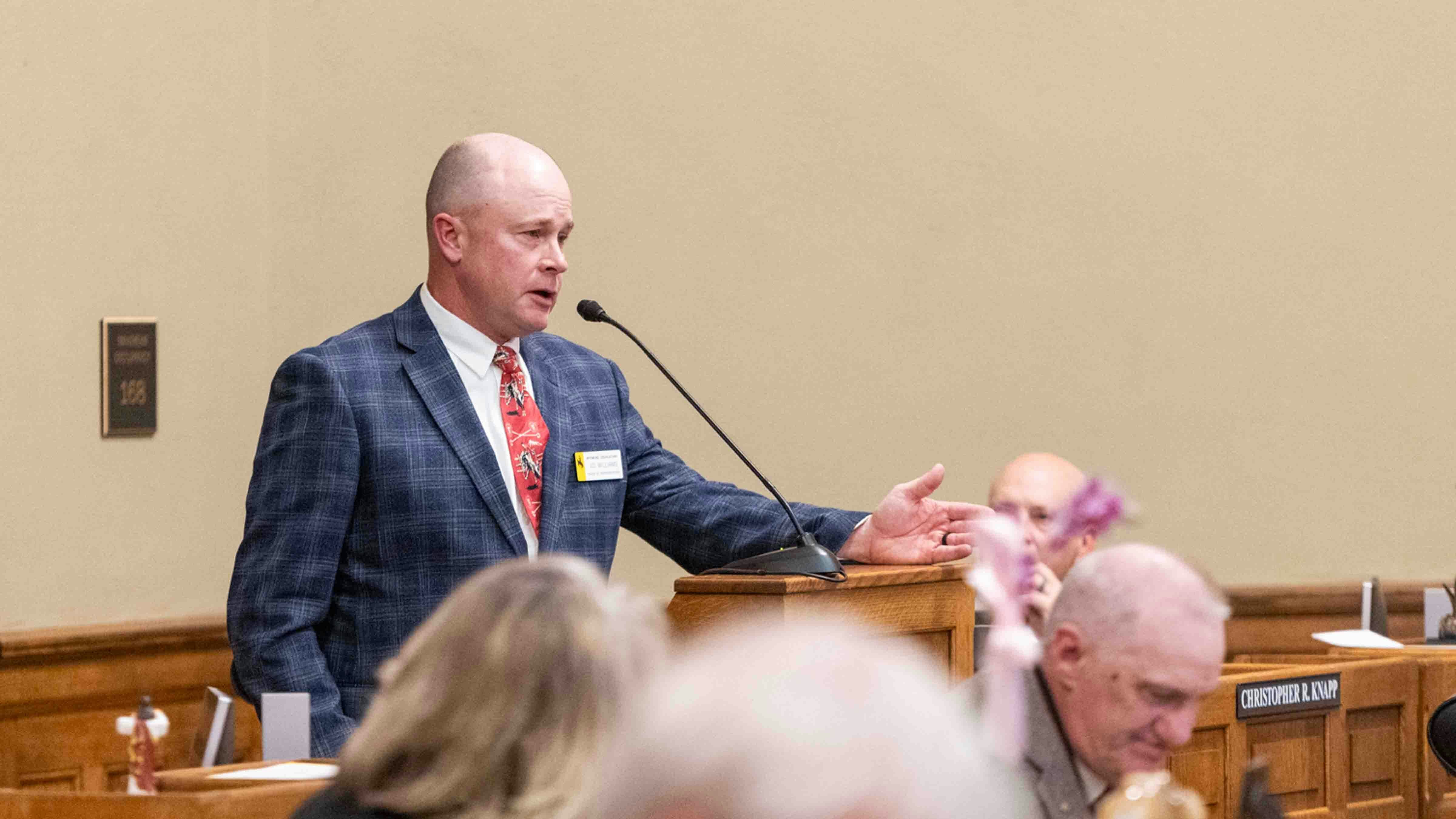By Wendy Corr, Cowboy State Daily
Three Rivers Hospital between Greybull and Basin is grappling with how to continue to fund the Bonnie Bluejacket nursing home, which is home to 18 residents – seniors whose families rely on the staff, and its location, to care for their loved ones.
Nursing homes across the region are closing due to staff shortages and financial concerns.
Just this year, seven nursing homes have closed in Montana, including three near the Wyoming border – Bozeman, Red Lodge and Hardin. Staff shortages and insufficient Medicaid reimbursement have been cited as the primary reasons for closing those facilities.
Community Issue
Bonnie Bluejacket isn’t just a nursing home – it’s a large portion of the community’s heart, according to Greybull Police Chief Bill Brenner.
“This is people’s parents, grandparents, and they want to be able to put them in a place that’s close, where they can come see them on the weekends, or every day for that matter,” he said. “And if they close this facility down, they’re not going to be able to do that.”
“Many people from the communities in the area have had loved ones here,” said Nursing Home Supervisor Anna Preciado. “They’ve had grandmas, grandpas, moms, dads – so it’s pretty important for the entire community.”
Deanna Werner, director of the Greybull Chamber of Commerce, said that the idea of closing the nursing home is worrisome to much of the community.
“If we don’t have that, that’s going to get rid of jobs, that’s going to get rid of a nursing home, of course, which is the primary thing,” she said. “But then my other question is, what’s going to happen to the hospital? Is the hospital going to go away next? That’s just a vital part of the area here.”
Werner pointed out that in anticipation of a possible closure, some families have already made the decision to move their loved ones out of Bonnie Bluejacket and into the Wyoming Retirement Center down the road in Basin.
“But that’s hard on the residents, because they have to change friends, they have to change schedules, change caregivers, everything,” she said.


Necessary Medical Facility
“This is the only hospital within about 30 to 35 miles in any direction,” said Rick Schroeder, interim CEO for Three Rivers Health. “And so we feel like our primary responsibility to our community is to keep a hospital and an emergency room open and running.”
Schroeder told Cowboy State Daily that last year alone, the hospital subsidized the nursing home to the tune of almost a million dollars. But by subsidizing the nursing home, necessary funds to keep the hospital afloat are diverted – which puts the hospital’s funding at risk.
That, Schroeder said, would be concerning, as the nearest hospitals are either a half hour south, 45 minutes north or one hour west of South Big Horn County Hospital, where Three Rivers Health and the Bonnie Bluejacket Nursing Home are located.
“There’s a thing called the ‘Golden Hour,’” he said. “And that’s if something happens, you have basically an hour to take care of (a medical emergency), or to try to reverse something that’s critical for care. And if this hospital closes, then we’re in trouble, or the community is in trouble.”
Much of the hospital district’s funding comes in the form of Medicaid or a mill levy on the county’s taxpayers, said Schroeder – which right now is taking up the slack for what the nursing home isn’t bringing in.
“Last year (Bonnie Bluejacket) cost the hospital over $900,000 more than the revenue that was generated by the care center,” he said.
Schroeder said the outlook is bleak at the current Medicaid funding levels.
“Right now, we get $183 and some change every day for every resident,” he said. “Our costs are $305 – (those are) just marginal costs.”
Family Concerns
For Brenner, the possibility of closing the nursing home is not just a community problem – it’s a family concern. His mother is one of the residents at Bonnie Bluejacket.
“In 2016, we decided to bring her down here when we knew she needed to go to a nursing home, so we can be closer to her,” Brenner told Cowboy State Daily. “And she’s thrived for six years. And then all of a sudden, we heard that they were thinking about closing the facility down.”
Brenner said that for his 86-year-old mother, closure of Bonnie Bluejacket would be extremely disruptive.
“It’s horrible, because for one, we’re gonna have to find a home that she can go to,” he said. “And we don’t know where that’s going to be. I mean, it may be in Wyoming, might be in Montana, Colorado, depending on where we can get her in.”
That would mean the family would have to travel several hours to visit her, Brenner said. Additional stresses, such as removal from her friends and the staff that she has come to know, would be a strain on his mother’s already fragile health.
“We’re scared that it could upset her health,” he said. “She wants to stay there, and we do want to keep her there.”


Money Matters
Both Werner and Brenner expressed concern about the accuracy of the accounting at Bonnie Bluejacket, and want to make sure that Three Rivers Health and the nursing home are receiving all the Medicaid funds they are entitled to.
“One thing we’ve requested, and I think several people have requested, is an audit of the billing department out there to see what has been going on,” said Brenner, “and make sure Medicaid has been being billed.”
But Schroeder said the company has had an independent auditor, as well as accountants with affiliate health care provider Billings Clinic, who have tracked the financials for the last six years.
“In the course of those six years, we’ve noticed a trend where it keeps costing us more and more money, supplied by the hospital and clinic, to keep Bonnie Bluejacket going,” he said.


Relief On the Horizon
However, Schroeder said there is hope, and grant funding, as well as an emergency Medicaid rate increase, could be the answer.
“Some of the things that we’ve looked at, we’ve looked at two grants – well, one is a grant, and one is actually a Medicaid distress facility rate increase,” he said. “They were able to get us a rate increase – temporary – for $293 and some change, so now we’re missing the mark by about $12 per resident per day. And that gives us a lot greater ability to keep things open.”
Schroeder said the temporary rate increase has been approved for six months, and with the potential of six months again in the future, if needed.
“The money that we’re getting from the state, from Medicaid, still is subject to (South Big Horn County Hospital) board adoption,” he said. “But I expect that they will say, ‘Oh, yes.’”
Preciado says their number one priority is the residents.
“We’re just trying to do the best by them, and make sure that they have a safe, appropriate place to live.”





